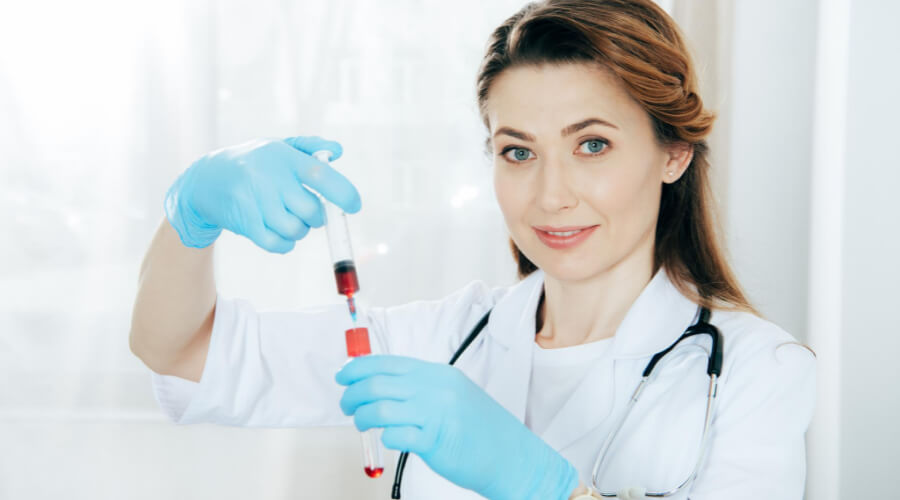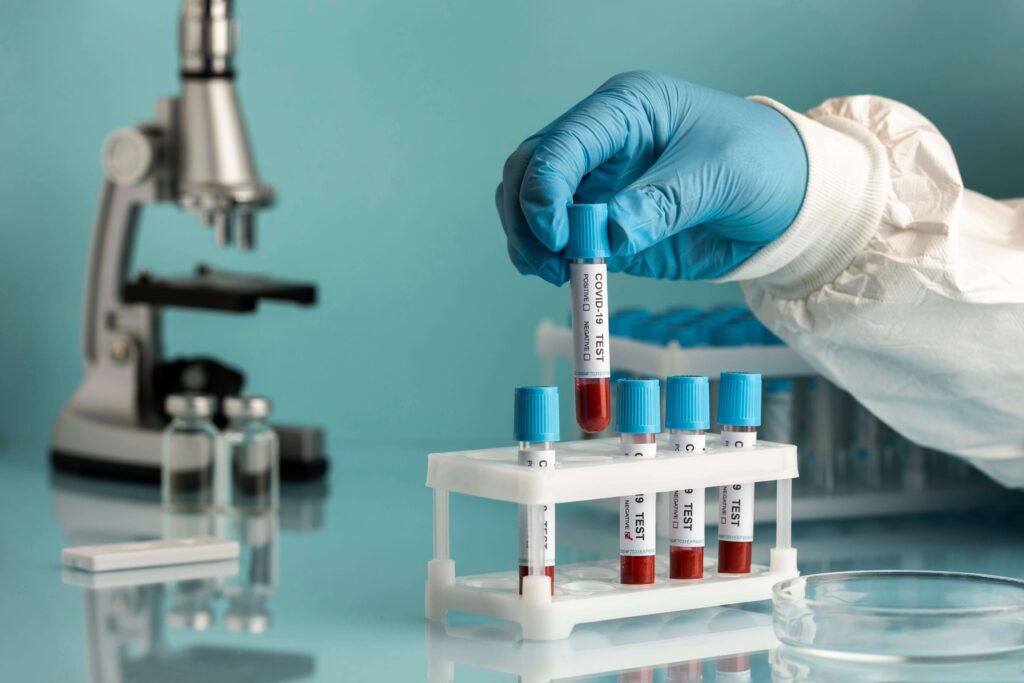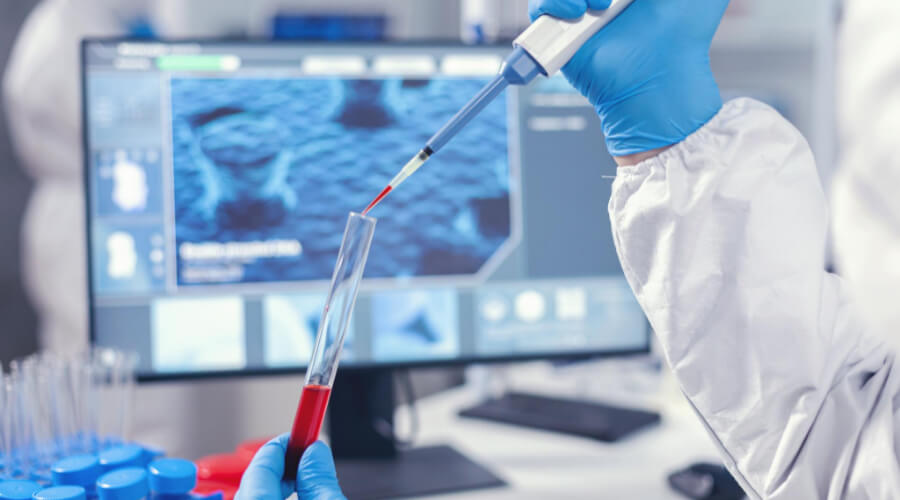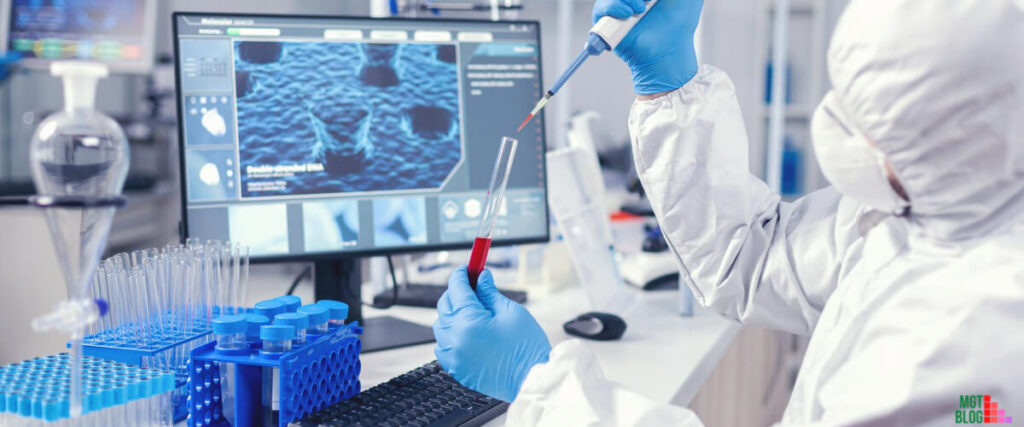In the USA, blood tests would cost you about $432 if you don’t have insurance. It’s the average cost; the exact cost could be low or high depending on the blood test type and it can range from $50 to upwards of $1,000. For example, a basic CBC test would cost you about $100–$150 and this test includes complete blood count, electrolytes, glucose, kidney function, etc. If you have insurance then the cost of blood tests will reduce significantly. You can also go to community health clinics or order at-home lab tests to reduce blood test costs.
Key Takeaways
- In the USA, every year more than 7 billion clinical lab tests are done and the majority are blood tests
- There are various types of blood tests available and the cost varies depending on blood test types
- If you don’t have any health insurance coverage, then blood tests will cost you more money
- CBC, Lipid Panel, Basic Metabolic Panel (BMP), etc. are the most common type of blood tests
Cost Of Bloodwork Without Insurance (Chart With Details)

The cost of a blood test without insurance varies depending on various factors like what type of blood test you are doing, how many tests you need, where you get tested, etc. Below are the costs of some common blood tests without insurance.
| Test Name | Cost without Insurance |
| Automated Pap Test Screening and Manual Rescreening | $120 – $140 |
| Automated with Microscope Examination | $40 – $60 |
| Automated without Microscope | $20 – $30 |
| Bacterial Culture | $25 – $35 |
| Bacterial Culture Swab | $70 – $85 |
| Bacterial Culture Swab for Aerobic Isolates | $30 – $35 |
| Bacterial Culture, Quantitative Colony Count | $55 – $70 |
| Basic Metabolic Panel | $60 – $70 |
| Blood Count (Hemoglobin) | $5 – $10 |
| Blood Glucose (Sugar) Level | $50 – $60 |
| Blood Glucose Control (Hemoglobin A1C) | $65 – $85 |
| Blood Typing (ABO) | $40 – $55 |
| Blood Typing (Rh (D)) | $35 – $50 |
| Borrelia Burgdorferi (Lyme disease) Antibody Level | $170 – $190 |
| C-reactive Protein (CRP) Level | $70 – $80 |
| Chlamydia Test | $100 – $120 |
| Cholesterol Test, Lipid Panel | $140 – $165 |
| Clotting Time | $40 – $50 |
| Coagulation Assessment | $50 – $60 |
| Complete Blood Cell Count (Hemoglobin) | $30 – $40 |
| Complete Blood Cell Count and Automated White Blood Cells | $40 – $50 |
| Comprehensive Metabolic Panel | $85 – $100 |
| Coronavirus (COVID-19) Antibody Level | $50 – $65 |
| Creatinine Level | $20 – $30 |
| Detection for Strep (Streptococcus, group A) | $40 – $50 |
| Detection Test for Hepatitis B Surface Antigen | $80 – $95 |
| Detection Test for Human Papillomavirus (HPV) | $130 – $145 |
| Electrolytes Panel | $20 – $35 |
| Evaluation of Antimicrobial Drug (antibiotic, antifungal, antiviral) | $70 – $85 |
| Ferritin (Blood Protein) Level | $110 – $120 |
| Folic Acid Level | $120 – $135 |
| General Health Panel | $265 – $290 |
| Gonorrhoeae (Neisseria Gonorrhoeae Bacteria) Test | $100 – $110 |
| Hepatic (Liver) Function Panel | $65 – $80 |
| Hepatitis B Surface Antibody Level | $80 – $95 |
| Hepatitis C Antibody Level | $150 – $160 |
| Iron Binding Capacity | $50 – $60 |
| Iron Level | $35 -$45 |
| Lab Test to Detect Coronavirus (COVID-19) | $65 – $80 |
| Lab Test to Detect HIV-1 and HIV-2 | $110 – $120 |
| Lab Test to Measure Creatinine Level | $50 – $65 |
| LDL Cholesterol Level | $55 – $70 |
| Lead Level | $100 – $110 |
| Lipase (Fat Enzyme) Level | $60 – $75 |
| Magnesium Level | $50 – $60 |
| Manual Pap Test Screening | $100 – $110 |
| Microalbumin (Protein) Level | $75 – $90 |
| Pregnancy (Obstetric) Panel | $400 – $425 |
| Pregnancy Test | $40 – $50 |
| Presence of Drug | $100 – $110 |
| Prostate-Specific Antigen (PSA) Level | $150 – $160 |
| Renal (Kidney) Function Panel | $70 – $85 |
| Smear for Microorganism | $50 – $60 |
| Test for Disease-Causing (Pathogenic) Organisms, Not Limited to a Specific Condition | $50 – $60 |
| Thyroglobulin (Thyroid Protein) Antibody Level | $120 – $135 |
| Thyroid Stimulating Hormone (TSH) Level | $130 – $140 |
| Thyroxine (Thyroid Chemical) Level, Free | $145 – $160 |
| Triiodothyronine (T3) Thyroid Hormone Measurement | $230 – $255 |
| Vitamin B-12 (Cyanocobalamin) Level | $125 – $140 |
| Vitamin D-3 Level | $250 – $270 |
Different Types Of Blood Testes

There are various types of blood tests available that may be recommended by your physician. Below are overviews of some common types of blood tests and what they test for.
1. Complete Blood Count (CBC)
This is a very common blood test and it checks the levels of white blood cells, red blood cells, and platelets in your body. This test is usually done to evaluate the overall health status and screen for diseases. According to many physicians, an adult should do a CBC test once a year.
2. Lipid Panel
This blood test measures fat substances of your body like total cholesterol level, triglyceride level, HDL cholesterol, and LDL cholesterol. With this test, you can check your health and screen for risk of cardiovascular disease. If you think there are any cardiovascular disease risk factors on your body then you should consult a physician and do this test.
3. Basic Metabolic Panel (BMP)
This test measures the levels of eight substances in the blood. With this test, you can identify kidney problems, lung problems, diabetes, and other health conditions. After the age of 30, you should do this test at least once a year to monitor your health condition.
4. Comprehensive Metabolic Panel (CMP)
This test includes all the same substances of a basic metabolic panel as well as extra six tests that will measure liver functions. Your physician might suggest you test a CMP rather than a BMP if he/she wants to get a more complete picture of your health, diabetes, liver disease, kidney disease, etc.
5. A1C
With this test, you will be able to know the average blood sugar levels of the past few months. You will need to take this test to diagnose diabetes or pre-diabetes.
6. Vitamin D
Vitamin D test is done to monitor the levels of Vitamin D in the body. This test allows the physicians to decide if you need any dietary changes or supplements to maintain a healthy lifestyle. Usually, this type of test is a part of routine checkups of your body.
7. Sexually Transmitted Infection (STI) Test
You have to take this type of test to detect the presence of sexually transmitted infections in your body. Some STI tests are done from a blood sample like HIV, syphilis, etc. The frequency of this test depends on your age, gender, and sexual activity.
8. Thyroid Stimulating Hormone Test (TSH)
This is another very common blood test that helps you monitor the levels of TSH in your blood. This test allows you to know how your thyroid is functioning. Physicians might recommend you this test to diagnose hyperthyroidism and hypothyroidism. The frequency of this test also depends on your age, risk factors, and if there are any symptoms of a thyroid condition in your body.
Where To Do The Blood Test

There are many places available where you can do your blood test. While doing a blood test you should pick the place carefully because where you get your blood tested also affect how much you have to pay for the test.
1. Urgent Care or Doctor’s Office
There are many urgent care facilities and doctor’s offices available that offer various blood tests. If you take your blood test from this place then you have to pay an office visit fee of about $100 – $200 along with the cost of the blood tests.
2. Laboratory Facilities
You can also get your blood test done at laboratory facilities. There are many laboratory facilities available like Quest Diagnostics, Labcorp, etc. and they don’t charge any extra fees for office visits. Moreover, various laboratory facilities have different programs that allow you to do the blood test and other types of tests at a discount price.
3. At-home Labs
Many companies have at-home labs that offer blood tests which you can order online and perform at home. Doing blood tests from at-home labs is less expensive than going to see a doctor in person. However, if you have a savior condition then you should consult a doctor before doing any tests.
4. Hospitals
This is the most common place where people went to do their blood tests. However, it is also the most expensive place to get blood work. Therefore, if you are doing your routine checkups then you should go to urgent care or doctor’s office to save some money. But if you have a life-threatening condition then you should go to a hospital.
Final Thoughts
Blood tests and other medical tests can be very expensive if you don’t have insurance. So, if you have no health insurance then you should consider very carefully where and how you are getting your blood test done. The place where you are getting your blood test done can reduce the amount you need to test the blood and save lots of money for you!
References:
1. https://health.costhelper.com/blood-test.html
2. https://campinghiking.net/insurance/how-much-does-a-blood-test-cost-without-insurance/
Last Updated on October 22, 2022 by Magalie D.

Magalie D. is a Diploma holder in Public Administration & Management from McGill University of Canada. She shares management tips here in MGTBlog when she has nothing to do and gets some free time after working in a multinational company at Toronto.





